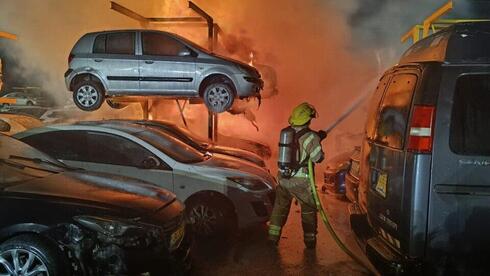Early Wednesday, Iranian media outlets reported that the Israeli Air Force conducted strikes on a ballistic missile production facility located in Khojir, near Tehran. This facility had previously been targeted by Israeli forces during last October’s attacks on Iran.
In addition to the missile site, reports indicated that Israeli jets also struck the Imam Hossein University in eastern Tehran, which is associated with Iran’s Islamic Revolutionary Guard Corps (IRGC).
Due to escalating tensions in the region, the U.S. Embassy in Jerusalem announced it would be closed from Wednesday through Friday. The U.S. State Department cited the need to adhere to Israeli security guidelines, stating, “Given the security situation and in compliance with Israel Home Front Command guidance, the U.S. Embassy in Jerusalem will be closed tomorrow (Wednesday, June 18) through Friday (June 20). This includes the Consular Sections in Jerusalem and Tel Aviv.”
Reports from Iranian media on late Tuesday noted that air defense systems were activated in Mashhad, marking the farthest point targeted by Israeli military actions in the current conflict, approximately 2,300 kilometers from Israel.
Three days prior, the Israeli Air Force successfully destroyed a mid-air refueling aircraft in the region. Subsequent reports also detailed explosions being heard in Tehran, with the IDF confirming its operations in the area shortly after these reports emerged.
Simultaneously, military sirens were activated in southern Israel due to an Iranian drone incursion. The IDF Spokesperson’s Unit stated late Tuesday that Iran launched a second wave of missiles aimed at central Israel, shortly after the initial barrage that startled millions of residents. Initial assessments indicated that at least ten missiles were launched toward the country.
Emergency services in Israel reported that cars caught fire after one of the missiles impacted central Israel, with no immediate injuries reported from the latest assault. The IDF’s Home Front Command advised citizens that they could leave shelters following the missile attacks from Iran directed at Israel’s central and northern regions.
In the backdrop of these developments, Prime Minister Benjamin Netanyahu concluded a phone call with U.S. President Donald Trump as the Iranian attacks escalated.
Air raid sirens rang out across central and northern Israel early Wednesday as approximately 15 missiles were fired from Iran, with most being intercepted by Israeli air defense systems. The IDF reaffirmed its commitment to neutralizing threats, stating, “At this time, the IAF is operating to eliminate the threat.” They also reminded the public that while defenses are robust, they are not foolproof and urged adherence to Home Front Command instructions.
The Magen David Adom emergency service announced that initial evaluations indicated no injuries from the most recent missile attack. Emergency teams were dispatched to assess the situation in areas where sirens had been activated, with further updates anticipated.

